Abstract
Peutz-Jeghers syndrome (PJS) is a very rare genetic disorder. PJS carries a high risk of developing gastrointestinal (GI) cancer or non-GI cancer with advancing years. However, major symptoms of PJS in childhood are obstruction, intussusception, and bleeding from hamartomatous intestinal polyps which in majority of cases are not related to cancer. Generally, first GI symptom develops by 20 years in one half of children diagnosed with PJS. Children under two years of age who had PJS polyp-related intestinal symptoms are rare, and there have been no published report on intestinal carcinoma development, adenomatous change or dysplasia of polyps in Korean children with PJS. Recently, the authors have experienced a case PJS with adenomatous polyp change in a 15-month-old boy who had STK11 gene mutation. Therefore, early evaluation could be necessary and considered in children with PJS.
References
1. You IY, Youn SJ, Jeon WJ, et al. Two cases of a solitary peutz-jegh-ers polyp in the rectum. Korean J Gastrointest Endosc. 2008; 36:107–111.
2. Goldstein SA, Hoffenberg EJ. Peutz-Jegher syndrome in childhood: need for updated recommendations? J Pediatr Gastroenterol Nutr. 2013; 56:191–195.
3. Sul JH, Kim KC, Kim BS. Two cases of Peutz-Jeghers syndrome. J Korean Pediatr Soc. 1978; 21:557–562.
4. Lee BG, Shin SH, Lee YA, Wi JH, Lee YJ, Park JH. Juvenile polyp and colonoscopic polypectomy in childhood. Pediatr Gastroenterol Hepatol Nutr. 2012; 15:250–255.

5. Lim MS, Seo JK, Ko JS, Yang HR, Kang GH, Kim WS. Clinical, endoscopic and pathologic findings of colonic polyposis in Korean children. Korean J Pediatr Gastroenterol Nutr. 2010; 13:154–163.

6. Lee HJ, Lee JH, Lee JS, Choe YH. Is colonoscopy necessary in children suspected of having colonic polyps? Gut Liver. 2010; 4:326–331.

7. Beggs AD, Latchford AR, Vasen HF, et al. Peutz-Jeghers syndrome: a systematic review and recommendations for management. Gut. 2010; 59:975–986.

8. Yang HR, Ko JS, Seo JK. Germline mutation analysis of STK11 gene using direct sequencing and multiplex ligation-dependent probe amplification assay in Korean children with Peutz-Jeghers syndrome. Dig Dis Sci. 2010; 55:3458–3465.

9. Ranjan R, Nath D, Dey S, Arava S. Multifocal Jejunoileal carcinoma in a 7-year-old boy with Peutz-Jeghers syndrome: a rare occurence. Indian J Med Paediatr Oncol. 2014; 35:121–122.

10. Choi HS, Park YJ, Youk EG, et al. Clinical characteristics of Peutz-Jeghers syndrome in Korean polyposis patients. Int J Colorectal Dis. 2000; 15:35–38.

11. Chae HD, Jeon CH. Peutz-Jeghers syndrome with germline mutation of STK11. Ann Surg Treat Res. 2014; 86:325–330.

12. Ko WO, Kim JI, Nam JY, et al. Clinical observation of colorectal polyps. Korean J Gastrointest Endosc. 2008; 37:105–111.
13. Saranrittichai S. Peutz-jeghers syndrome and colon cancer in a 10-year-old girl: implications for when and how to start screening? Asian Pac J Cancer Prev. 2008; 9:159–161.
14. Wangler MF, Chavan R, Hicks MJ, et al. Unusually early presentation of small-bowel adenocarcinoma in a patient with Peutz-Jeghers syndrome. J Pediatr Hematol Oncol. 2013; 35:323–328.

15. Resta N, Pierannunzio D, Lenato GM, et al. AIFEG. Cancer risk associated with STK11/LKB1 germline mutations in Peutz-Jeghers syndrome patients: results of an Italian multicenter study. Dig Liver Dis. 2013; 45:606–611.

16. Korsse SE, Biermann K, Offerhaus GJ, et al. Identification of molecular alterations in gastrointestinal carcinomas and dysplastic hamartomas in Peutz-Jeghers syndrome. Carcinogenesis. 2013; 34:1611–1619.

17. Wang ZJ, Ellis I, Zauber P, et al. Allelic imbalance at the LKB1 (STK11) locus in tumours from patients with Peutz-Jeghers' syndrome provides evidence for a hamartoma(adenoma)carcinoma sequence. J Pathol. 1999; 188:9–13.
Fig. 1.
A protruding anal mass is observed, which the 15-month-old boy's parent recalls has been present since one month ago.
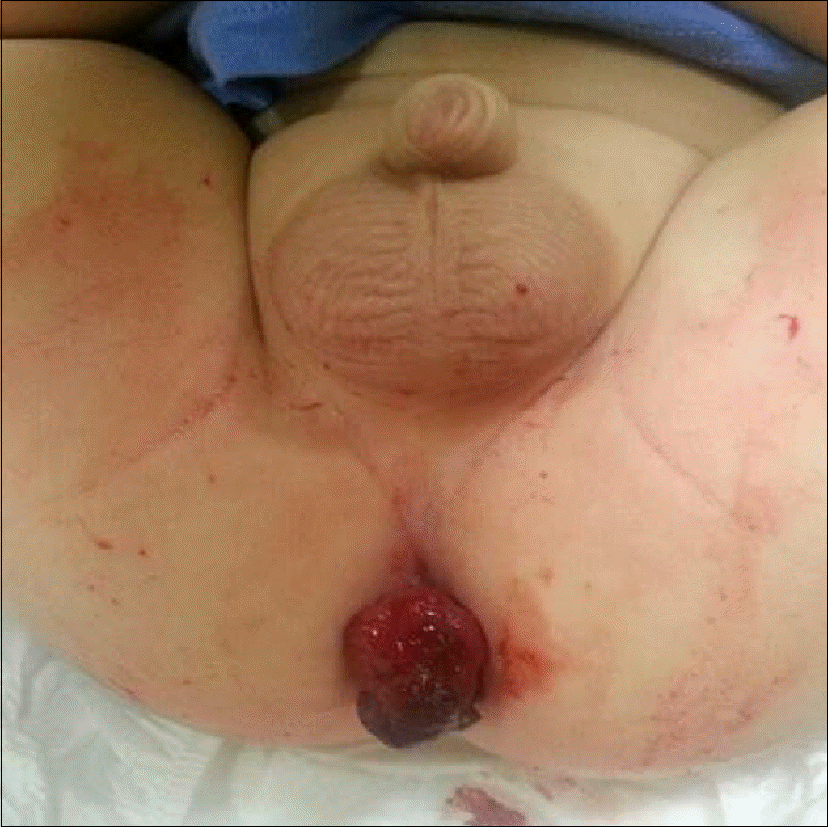
Fig. 5.
On histologic examination, the polyp shows well-developed arborizing smooth muscle fiber bundles and complex hyperplastic glandular structures (H&E stain, ×100).
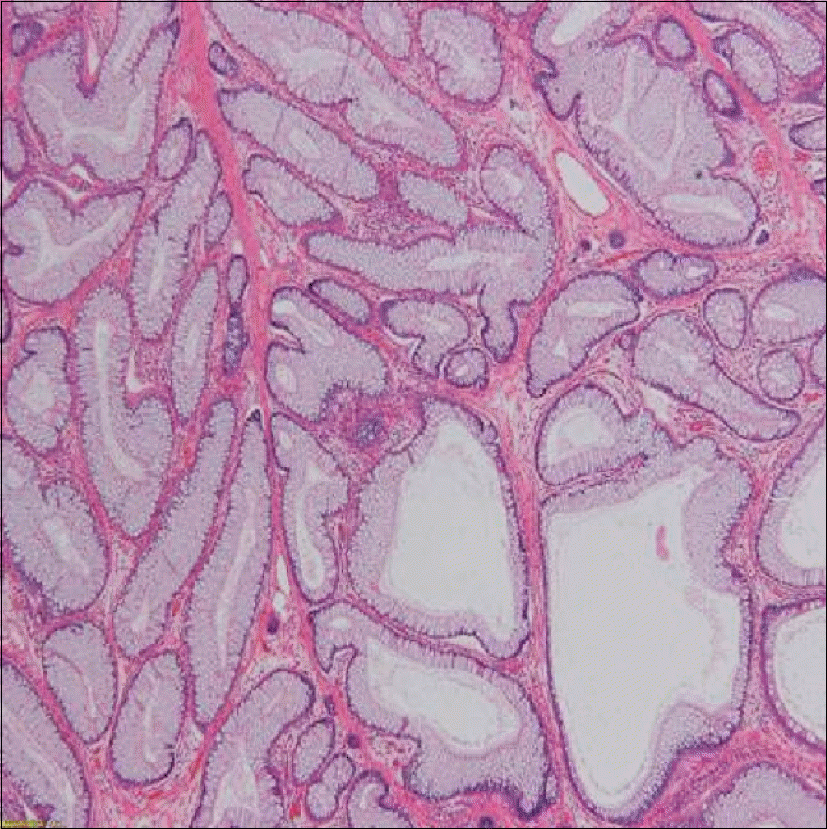
Fig. 6.
The surface mucosal epithelia of the polyp show multifocally adenomatoid cell proliferation, that is continuous with the matured surface epithelium, compatible with regenerating crypt atypia (H&E stain, ×400).
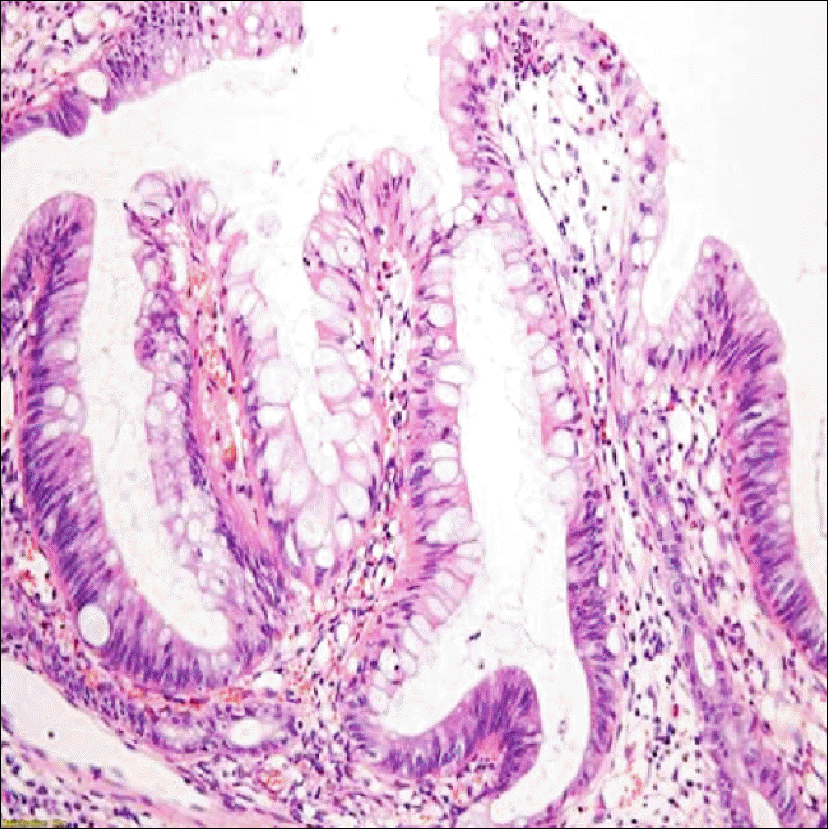
Table 1.
Characteristics of Polyps




 PDF
PDF ePub
ePub Citation
Citation Print
Print


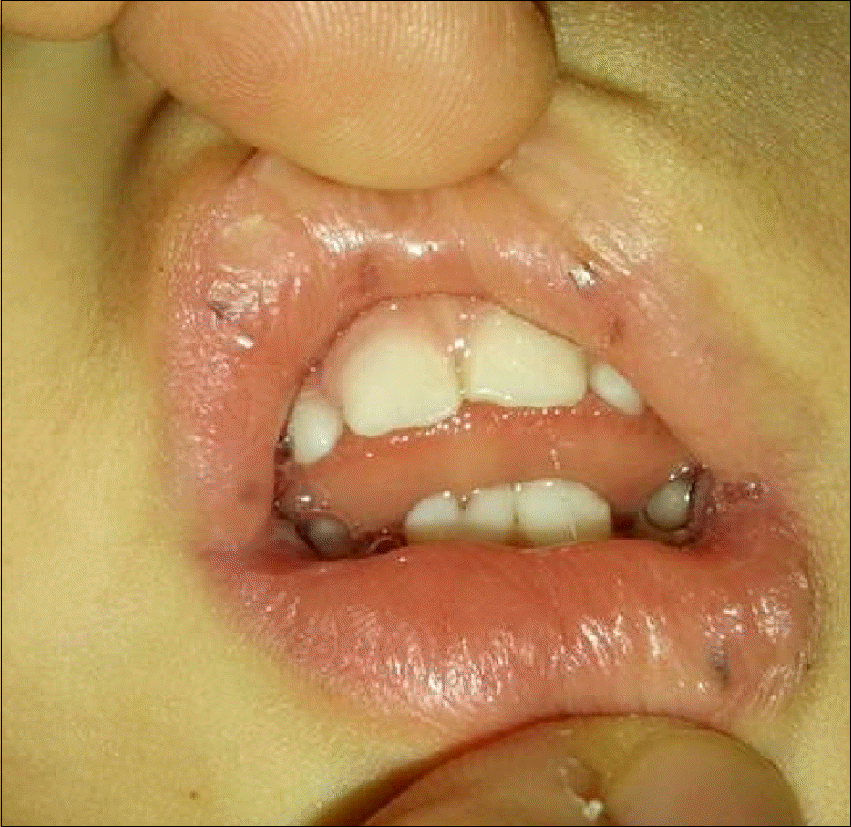
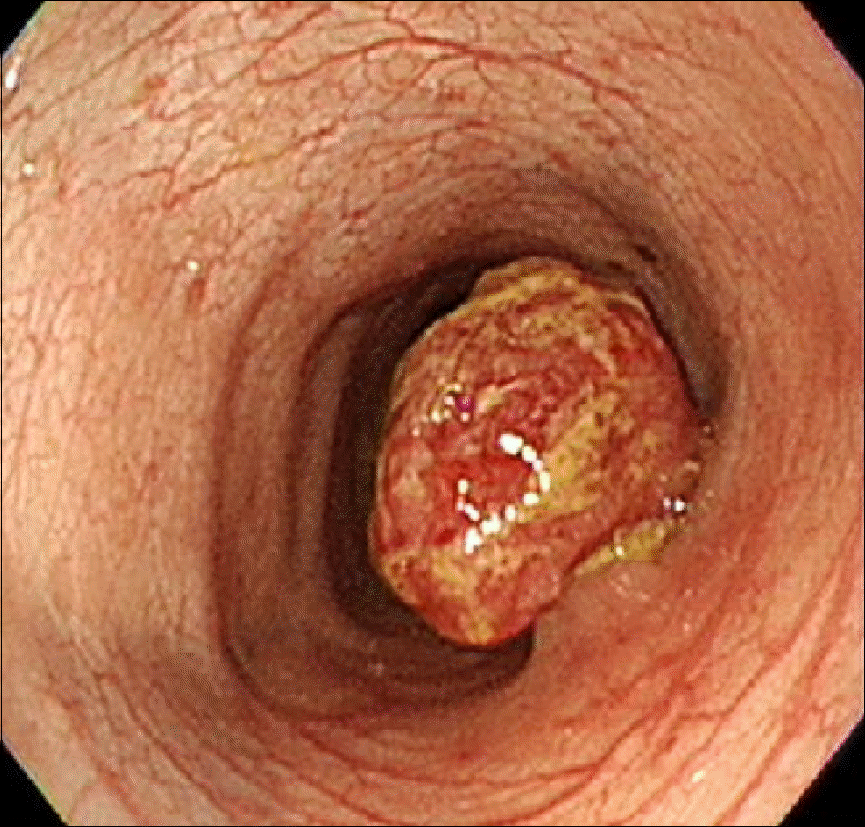
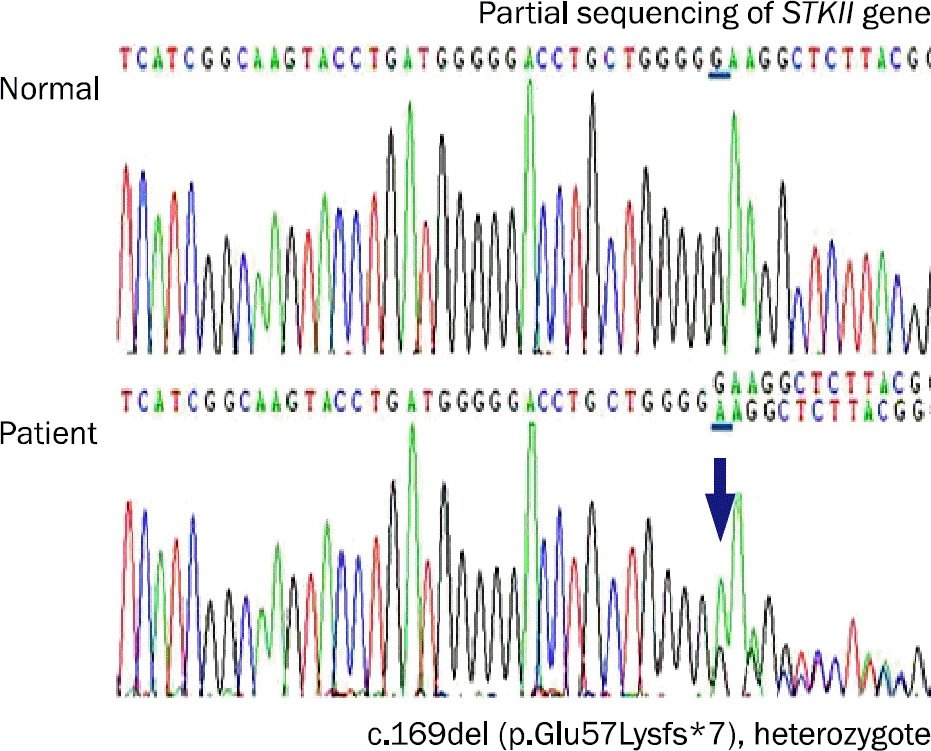
 XML Download
XML Download